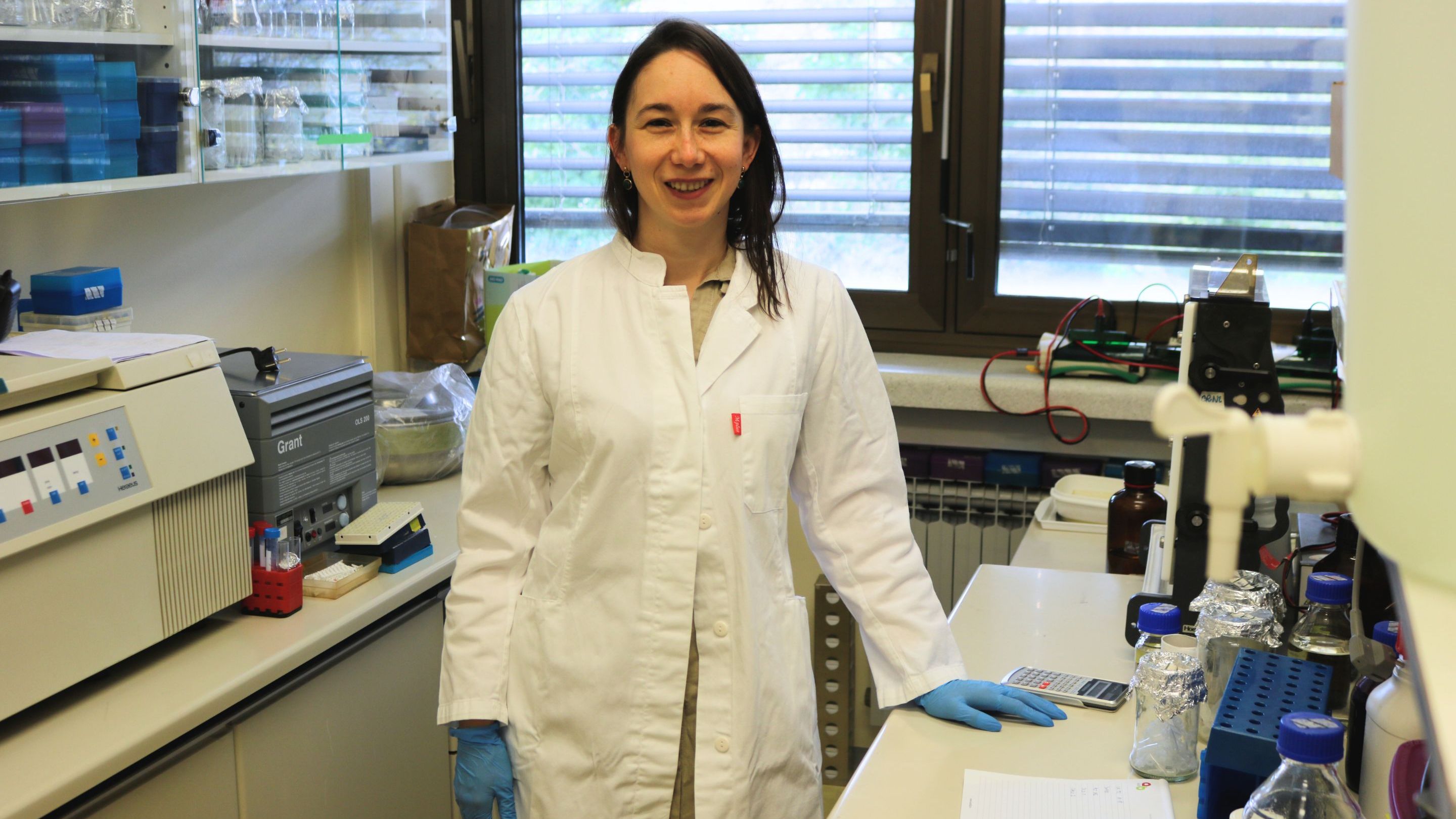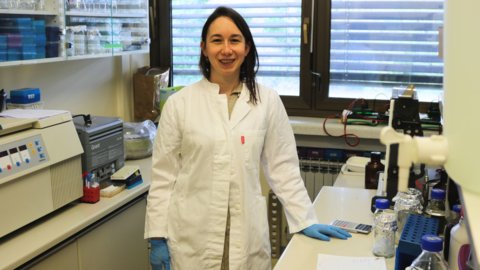In today’s fast-paced world of takeaways and desk jobs, non-alcoholic fatty liver disease (NAFLD) is becoming a silent epidemic.
Imagine your liver as a factory, tirelessly processing everything you eat. When it runs smoothly, it keeps your body in balance. But what happens when fat starts piling up on the production line?
At first, the body copes—but over time, this build-up can overwork the liver’s "machines," or cells, triggering a cascade of problems. This marks the beginning of fatty liver disease, which can progress to more serious conditions like steatohepatitis, fibrosis—where healthy liver tissue is replaced with scar tissue—and eventually lead to cirrhosis or even liver cancer.
Dr Sonja Marinović, a scientist at the Ruđer Bošković Institute (IRB), has dedicated her research to understanding this very issue. During her PhD at the University of Rijeka under the mentorship of Prof. Bojan Polić, Sonja explored how inflammation begins to take hold in the liver—often long before symptoms appear.
“Our research showed that inflammatory processes in the liver can be triggered much earlier than we thought,” Sonja explains. “We found that a high-calorie diet causes liver cells to display signs of metabolic stress on their surface—this in turn activates the immune system, sparking inflammation and cellular damage.”
This early phase of disease could hold the key to stopping it in its tracks. Her findings, published in Science Immunology, earned Sonja the 2023 Croatian National Science Award for Biomedical and Health Sciences.
“The award means more to me than just recognition,” she says. “It’s a milestone in my scientific journey. It’s also raised the visibility of my work and opened doors for new collaborations.”
From Zagreb Classrooms to World-Class Laboratories
Sonja’s scientific path began at the University of Zagreb’s Faculty of Science. After graduating, she pursued a PhD at the Faculty of Medicine in Rijeka.
Her postdoctoral training took her to the world-renowned Francis Crick Institute in London, where she worked in the lab of Prof. Adrian Hayday, exploring complex mechanisms of the immune system. She then spent a year in Vienna at the University of Veterinary Medicine, working in Prof. Veronika Sexl’s research group.
The Link Between Obesity, the Immune System and Cancer
Today, Sonja is based in the Laboratory for Personalised Medicine at IRB, working in the research group led by Dr Sanja Kapitanović. Her work now focuses on how the immune system responds to various diseases—including colorectal cancer. She’s particularly interested in how obesity impairs the immune system, potentially fuelling cancer growth.
“Obesity has a detrimental effect on immune function and can influence both the development and progression of tumours,” she says. With nearly a quarter of the global population classified as overweight, Sonja believes a multidisciplinary approach—combining immunology, oncology and metabolic research—could pave the way for new therapies.
These future treatments could be especially impactful for obese individuals, who often respond poorly to current immunotherapy options. Her research highlights the urgent need for integrated approaches in modern medicine—treating the person, not just the disease.
Advice for Young Scientists: Patience and Perseverance
We asked Sonja what it’s like working at the Ruđer Bošković Institute. She shared that she joined the IRB just before the COVID-19 pandemic began, which significantly shaped her early days.
“I actually spent part of the pandemic doing postdoc work in Austria,” she says. “It’s only in the past two years that I’ve really had a chance to experience what it’s like to work at IRB. What I really appreciate is the support for young scientists through internal funding schemes and project calls—it’s an important lifeline in a system where science is often underfunded and buried in bureaucracy.”
Despite these challenges, Sonja says success is possible—with the right support and a strong network.
“I’ve learned that having mentors who understand the realities of science in Croatia, as well as collaborations with universities and institutes both here and abroad, makes a world of difference. International networks like COST Actions are invaluable.”
Her message to young researchers? “Be patient and persistent. In Croatia, there are many PhDs but very few postdoc positions—and they’re usually temporary. Landing a permanent role in science often depends on timing and a bit of luck. So, look to industry opportunities, and don’t be afraid to go abroad. Gaining experience abroad can give you an edge if you decide to return to Croatia later on through reintegration schemes.”
Final Thought: Big Discoveries Can Begin in the Smallest Places
Sonja Marinović’s scientific journey—from a Zagreb student to a national award-winning scientist—is a shining example of perseverance, curiosity, and passion for discovery.
Her research is revealing how obesity and metabolic stress affect the immune system, paving the way for better treatments—and reminding us that the tiniest molecules in our bodies can unlock life-saving insights.
And who knows—perhaps there’s another young Sonja out there right now, just beginning her journey. One day, she might hold the next piece of the puzzle in our fight against disease.
Good luck, Sonja! We’ll be watching your next steps with interest!






